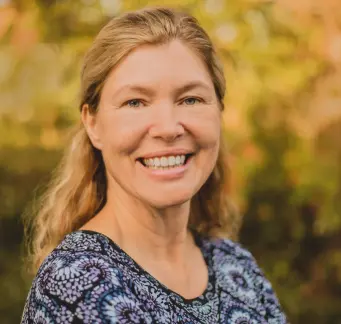
Written by: Kim LeFevre
November, 17 2022
With Thanksgiving just around the corner, it seems like the perfect time to take a moment to consider gratitude and the implications of making “thanksgiving” a daily practice. There is no dearth of information on this subject. Type a few words into a search engine, press ‘enter’ and voila! - articles abound. Why is the promotion of practicing gratitude such a hot topic? As it turns out, scientists believe that practicing gratitude is good for us. In fact, the practice of gratitude appears to have emotional, social, personality, career, and health benefits (postivepsychology.com, 2022). Yes, please! I will take some of that and...thank you!
How is it possible that giving thanks influences so many sectors of our lives? It all begins with our thought life. According to Dr. Caroline Leaf, “Thoughts are real physical things that occupy mental real estate” (2013, p. 32). Thoughts exist as proteins, and they enter our DNA. As we think and imagine, we change the structure and function of our brains (Leaf, 2013). Put simply, we can choose the sort of mental neighborhood we live in. The work begins with metacognition - the thinking we do about the thinking we do. When it comes to gratitude, we must choose to see the blessings around us.
Working to our disadvantage is that “In general, people are more aware of their ‘headwinds' (barriers they face) than ‘tailwinds’ (benefits they receive)” (Pratt, 2022). Because of this reality, Author Nancy Davis Kho encourages the practice of “strengthening your positive recall bias” (Pratt, 2022). Knowing that we have a natural tendency to focus on the difficult or negative things in our lives can help us get through that initial period of implementing positive recall bias. It goes against our nature. We must keep practicing because we are changing the structure of our brains. Changing the neighborhood as it were. According to Dr. Caroline Leaf, “As we think we change the physical nature of our brain. As we consciously direct our thinking, we can wire out toxic patterns of thinking and replace them with healthy thoughts. New thought networks grow. We increase our intelligence and bring healing to our brains, minds, and physical bodies” (2013, p. 20). This ‘conscious directing of thinking’ sounds very much like the Apostle Paul’s admonition in 1 Corinthians to take every thought captive. How invested are we in our ‘mental neighborhoods’? Building abbeys instead of slums takes a lot of work, but this is where we live, and it affects everything.
What does practicing gratitude look like? “Dr. Robert Emmons, professor of psychology at UC Davis, defines gratitude as having two parts. The first is an affirmation of goodness: people learn to wake up to the good around them and notice the gifts they have received. The second part of gratitude is recognizing that the source of this goodness rests outside of oneself” (Pratt, 2022). Kho’s positive recall bias fulfills the first part of the definition. Waking up to all the good that is in our lives is a choice and will need to be practiced. Second, and providentially, recognizing that God gives us these good gifts places us in the very heart of his will. “Give thanks in all circumstances for this is God’s will for you in Christ Jesus” (1 Thessalonians 5:17-18). Obedience in this area not only brings God glory, but it is for our good as well. We were endowed by our Creator with the ability to observe our own thoughts. And we are wired in such a way that our thoughts change the environs of our brains. “Purposefully catching your thoughts can control the brain’s sensory processing, the brain’s rewiring, the neurotransmitters, the genetic expression and cellular activity in a positive or negative direction” (Leaf, 2013, p. 73). Is it surprising then that scientists at the Greater Good Science Center at UC Berkeley report that gratitude unshackles us from toxic emotions? They also saw evidence that expressing gratitude has lasting effects on the brain (Brown & Wong, 2017). The research of Emmons and McCullough found that people who practice gratitude were more optimistic and felt better about their lives.An apparent link to health benefits was also observed (Harvard Health, 2021).We may not be able to control a lot of things in our lives, but we can exert control over how we respond to them.“How we react to the events and circumstances of life can have an enormous impact on our mental and even physical health” (Leaf, 2013, p. 20).
Gratitude allows us to live in the goodness of our God. How like Him that as we acknowledge His gifts with grateful hearts, and we are given more besides freedom, peace, community, and health. Science is reasserting what God has already reckoned as true. His glory and our good are never incompatible. And for that, I am grateful.

Kim LeFevre, NILD PCET
References
Ackerman, C. (2017, April 12). 28 Benefits of Gratitude & Most Significant Research Findings. PositivePsychology.com. https://positivepsychology.com/benefits-gratitude-research-questions/
Brown, J., & Wong, J. (2017, June 6). How Gratitude Changes You and Your Brain. Greater Good. https://greatergood.berkeley.edu/article/item/how_gratitude_changes_you_and_your_brain
Dr. Caroline Leaf. (2013). Switch On Your Brain. Baker Books.
Harvard Health Publishing. (2021, August 14). Giving thanks can make you happier - Harvard Health. Harvard Health; Harvard Health. https://www.health.harvard.edu/healthbeat/giving-thanks-can-make-you-happier
Pratt, M. (2022, February 17). The Science of Gratitude. Mindful. https://www.mindful.org/the-science-of-gratitude/